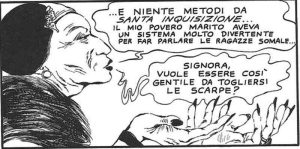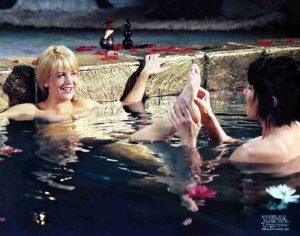Ticklish feet can be a delightful or annoying experience, depending on the person’s perspective. It is a unique sensation that causes laughter and giggles when someone tickles our feet. But have you ever wondered why certain individuals have ticklish feet while others don’t? Beyond the surface of amusement, there is an intriguing science behind ticklishness and its potential health implications.
When someone tickles our feet, it triggers a rapid response in the form of laughter or withdrawal. This is because the nerve receptors in the skin relay the tickling sensation to the brain, which interprets it as a non-threatening yet stimulating experience.

The effects of tickling on health
Tickling is a pleasant sensation that can be caused by an unexpected light touch on a sensitive area of the body. It is often accompanied by laughter and involuntary movements.Tickling triggers laughter, and laughter has numerous health benefits. It releases endorphins, reduces stress, and enhances overall well-being. Therefore, having ticklish feet could contribute to improved mental and emotional health.
Tickling can positively impact both our physical and mental well-being.
Tickling can have several beneficial effects on the body, including:
- Reducing stress and anxiety: Tickling triggers laughter, and laughter is known to be a natural stress reliever. When we laugh, our body releases endorphins, which are neurotransmitters that promote feelings of happiness and relaxation. This can help reduce stress and anxiety, leaving us with a sense of calm and well-being.
- Improving mood.
- Increasing the production of endorphins, which have pain-relieving and stress-relieving properties.
- Strengthening the immune system: Laughter, including that from tickling, can have beneficial effects on cardiovascular health. It can improve blood flow, enhance the function of blood vessels, and potentially lower blood pressure. These factors contribute to better heart health and reduce the risk of cardiovascular diseases.
- Improve blood circulation: Laughter from tickling involves deep breathing and increased oxygen intake. This can be beneficial for respiratory health, as it helps to clear the lungs and improve overall lung function.
- Relieve pain.
- Improve coordination and proprioception.
- Stimulate creativity: Tickling encourages a playful and carefree attitude, which can stimulate creativity and problem-solving abilities. Embracing playfulness in our lives can lead to more innovative thinking and greater mental flexibility.
- Enliven social relationships: Tickling one another’s feet can create a playful and intimate bonding experience in relationships. It fosters laughter and strengthens emotional connections. Sharing ticklish moments can lead to better communication and understanding between partners, promoting a sense of shared joy.
Tickling can also be used for therapeutic purposes, such as to help children with developmental disorders or to relieve pain in cancer patients.
In oncology, tickling can be used to relieve pain in patients undergoing chemotherapy or radiation therapy. Tickling can help distract them from pain and improve their mood.
In geriatrics, tickling can be used to improve mood and reduce stress and anxiety in the elderly. Tickling can also help the elderly develop social relationships and feel more involved.

However, it is important to note that not everyone enjoys tickling. Some people may find it unpleasant or even painful. If you are one of these people, it is best to avoid being tickled.
As Connie Sellecca says:
<<Do you laugh out loud during a pedicure? Good news: It means you probably have good balance! Because ticklish feet mean the 7-thousand nerves down there are functioning well and receiving messages from your brain. And we need that feedback so we can adjust our body to stay upright, whether we’re hiking on an uneven trail, walking on ice, or trying to cross a cobblestone street in stilettos! But as we age, feet get less sensitive, which is one of the reasons senior citizens are more prone to falling. To keep your feet functioning at their best, take 20-minutes a day to walk around barefoot. It stimulates pressure points on the soles of your feet that lead to better balance.>>
Tickling and nervous system disorder
In some cases, an unusually intense ticklish response could be a sign of underlying nervous system disorders. Conditions such as peripheral neuropathy or sensory processing disorders might manifest as heightened ticklishness.
The relation between ticklishness and reflexology
Reflexology, an alternative therapy, involves applying pressure to specific points on the feet. For some, extreme ticklishness during reflexology sessions could indicate imbalances or energy blockages in the body.
In this video, a woman demonstrates that she has regained sensitivity in the foot where she underwent surgery. In fact, she doesn’t react when her sister tickles her untreated foot, but she bursts into laughter and pulls back when her sister tickles the operated foot.
Real Life
Tickling is a sensation that often leads to laughter or smiling and that can reduce stress.
Ticklefoot
Tickefoot is project aims to address to design and develope a new foot-tickling mechanism that can produce laughter. They created an actuator that uses magnet-driven brushes to produce tickling sensations on the sole of the foot. Its stimuli can indeed produce laughter.

Medical videos
In this video, a patient with a history of diabetic nerve compressions regains feeling and sensation after decompression of the tibial and common perineal nerves. The doctor tickles her to test her sensitivity.

In this other video, a woman refers to tickling as a comparison term for foot sensitivity, and says she is returning to a regular tickling sensation as her doctor tickles her.

In this other video, the doctor looks into the patient’s condition. She states that she is returning to proper foot sensitivity, and in fact the doctor notices that she is laughing as he tickles her toes.

Again, tickling is taken as a benchmark for regained foot sensitivity. The female patient, laughing, states that the doctor is tickling her foot, and that she feels the sensation more than before.

Tv Shows
The Carol Burnett Show
Carol Burnett tickles with a feather a man who fakes to be paralyzed.
TV series
Fortunes at war
Simon Bouldestone (Rupert Graves) asks his friend to tickle him, to verify if he’s paralized. The man starts to tickle his feet and Simon laughs so loudly that the doctor rushes. All the presents laugh a lot.
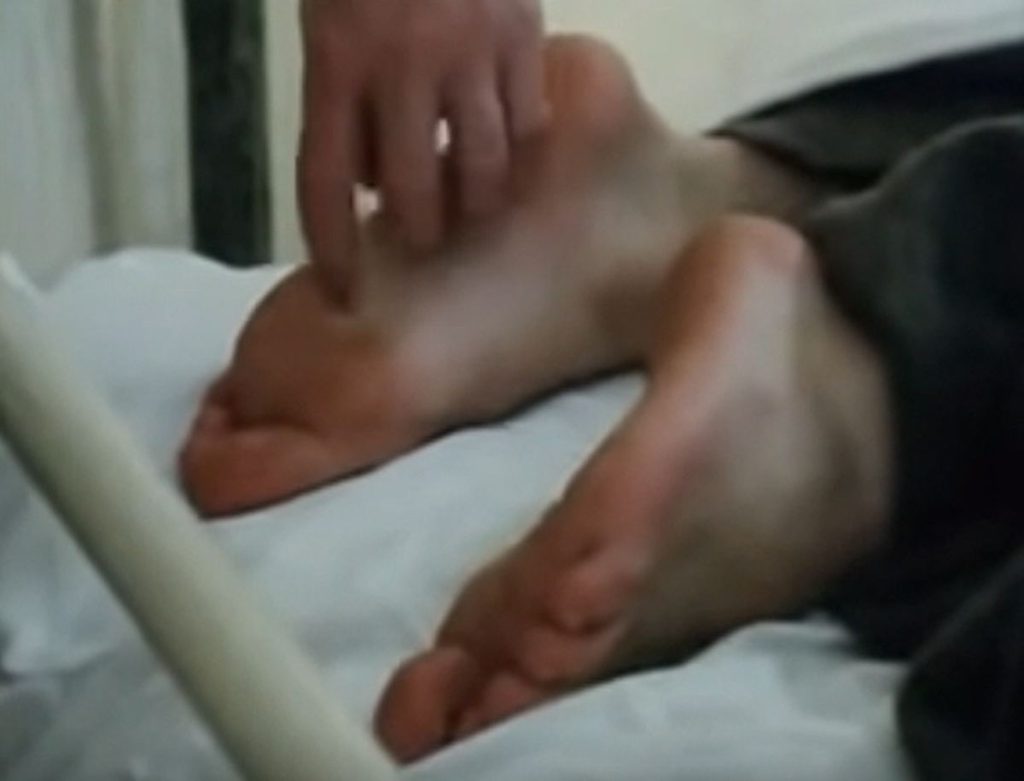

9-1-1
Episode from Season 6, Episode 7 title “Cursed’.
Actress Natalee Linez had a chandelier fall and trap her and told the EMT she could not feel anything. EMT does the Babinski test and the woman laughs.
EMT says “Looks like somebody felt that.”, and the woman replies “You’re tickling my feet, how could I not!”
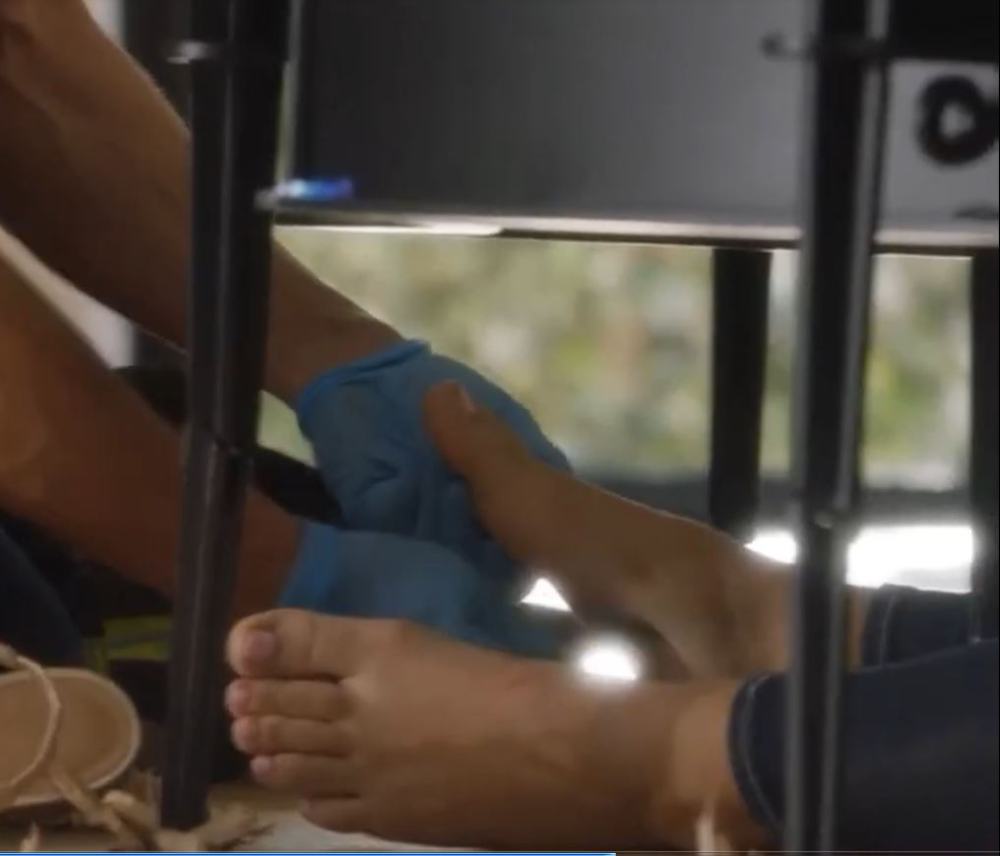
The woman laughs and claims he is tickling her.
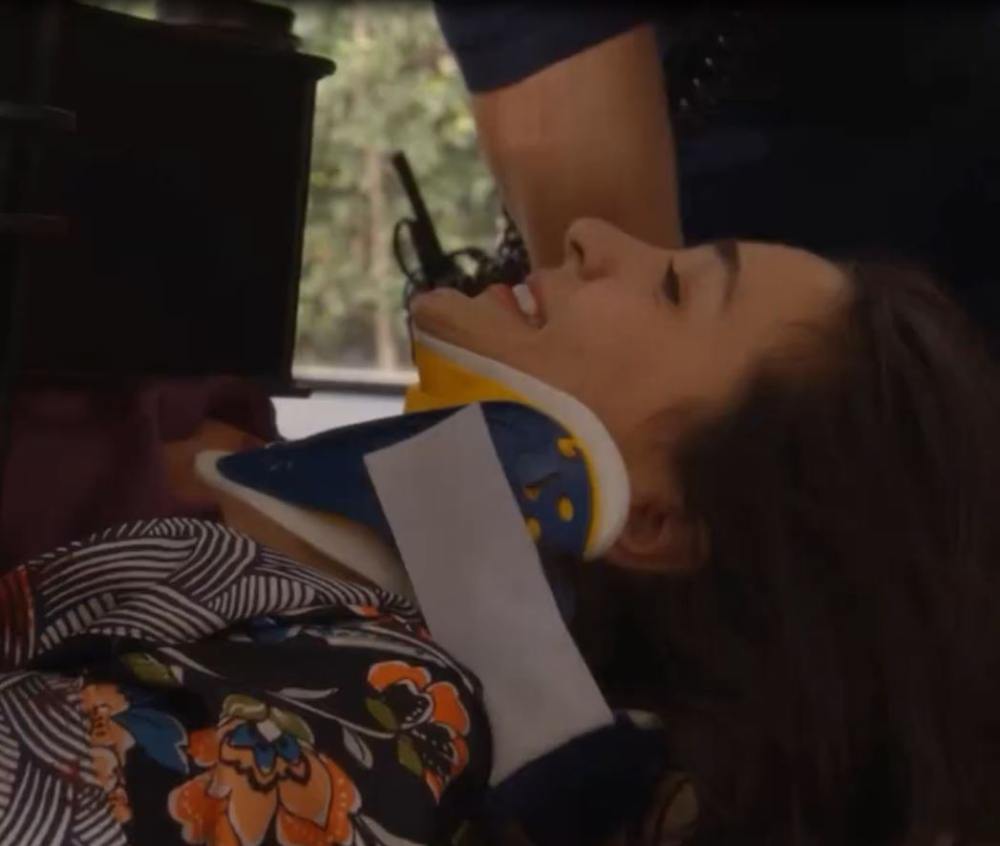
Movies
Dirty Rotten Scoundrels (1988)
Freddy Benson (Steve Martin) pretends to be paralyzed in his legs while Lawrence Jamieson (Michael Caine) intends to test whether indeed his nerve endings no longer transmit sensation.
And what better way to test the nervous system than by tickling it?

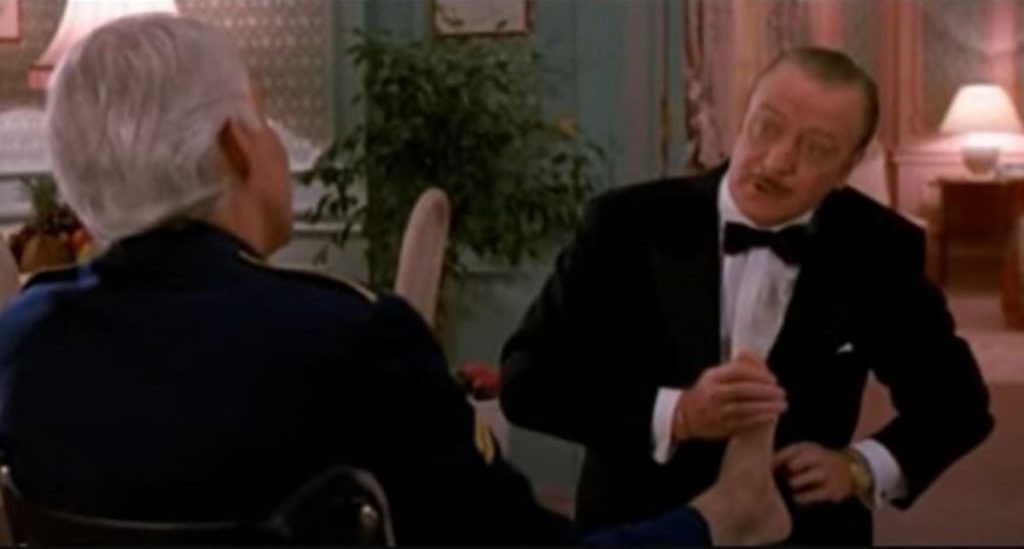
Lawrence removes Freddy’s shoes and begins tickling him with a finger under his foot, Moving the finger slowly up and down, asking him if he feels anything and observing his reaction.
Freddy, with great coolness, suppresses the urge to laugh and simulates a numb face.

Probably, Lawrence wants to find out whether Freddy is pretending to be paralyzed, so he decides to subject him to a physical reaction to force him to betray himself. By tickling him, he observes whether the man actually feels the tickling stimulus, which he cannot ignore if he really is healthy.
Freddy knows that if he were to smile it would show the pretense, so he restrains himself with great willpower (and comical results!).
Ein Sommer im Allgäu (2017)
In swiss movie “Ein Sommer im Allgäu”, a man practices goat torture on his friend, believed to be paralyzed, to show her that she actually still possesses leg sensitivity.

The girl in fact begins to laugh at the tickling the animal causes her by licking her, and realizes that she can feel her extremities again.










